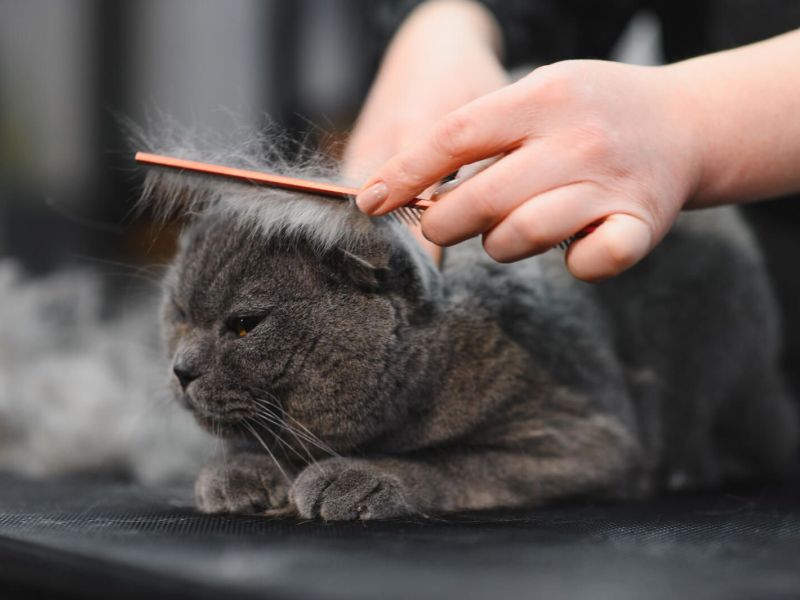Why Are Dogs So Loyal?
19 November 2024

Dogs are most certainly a man’s best friend. Loyalty in dogs goes beyond mere attachment; it's an emotional bond marked by trust and a desire to protect.
This loyalty can be observed in various behaviours, such as a dog following its owner from room to room or displaying vigilance in their presence.
For example, a dog may bark at strangers approaching its owner, demonstrating protective loyalty. But why are dogs so loyal to us?
Understanding loyalty in dogs
This instinctual behaviour often stems from their ancestry as pack animals, where loyalty to the pack was essential for survival. Dogs were domesticated from wild wolves, who would operate in packs, with an ‘alpha’ providing the leadership, structure and protection for the pack as a whole.
Whilst dogs have evolved away from wolves and now exhibit behaviour more commonly associated with social animals rather than pack members, many of the evolutionary traits remain.
Differences between dogs and wolves
There are many similarities between dogs and wolves, after all they share more than 99% of their DNA. Dogs and wolves can also breed together, producing wolf dogs.
However, many differences between wolves and dogs also exist and display themselves, including their appearance, behaviour and especially their relationship with humans.
Physical differences
Dogs typically have a shorter snout, wider frame and a smaller tail compared to a wolf.
Wolves eyes are yellow, while dogs usually have brown or blue eyes.
Behavioural differences
In terms of behaviour, dogs are more playful and less fearful than wolves, especially when dealing with humans.
Wolves operate in family units within their packs, and are often shy. Dogs are trainable, while wolves are not.
Whilst both dogs and wolves howl, the wolf howls to communicate with their pack, whereas the dog will howl to communicate in different ways, such as to let their human know that they are anxious or stressed.
What are some of the most loyal dog breeds, and why?
Certain breeds are renowned for their loyalty due to their historical roles and characteristics.
- German Shepherds were bred for herding and protection, leading to a strong desire to guard their family.
- Great Pyrenees are not only beautiful, large dogs, they are also fiercely confident and devoted to watching over their families.
- Collies, such as the lovable Lassie, are intelligent and compassionate pets loyal to their families.
- Golden Retrievers, originally bred for retrieving game, show loyalty through their friendly demeanour and eagerness to please.
- Akitas, with their deep historical ties to companionship and protection in Japanese culture, exhibit profound loyalty to their families.
A scenario illustrating this is when a Golden Retriever stays by a child’s side, offering comfort during a storm, exemplifying both loyalty and emotional support.
What makes some dogs more loyal than others?
Genetics plays a crucial role in loyalty.
Breeds developed for companionship, such as the Cavalier King Charles Spaniel, are often more inclined to form close bonds.
Additionally, early socialisation impacts loyalty; dogs exposed to various people and experiences are more likely to adapt positively to new situations.
For example, a dog raised in a loving home with consistent routines is likely to develop a strong attachment. Conversely, a dog that experienced neglect may struggle with loyalty, displaying fear-based behaviours instead.

Signs of loyalty within dogs
- They want to be near you, and will follow you around
- They exhibit protective instincts, sensing potential threats and trying to keep you from harm
- They maintain eye contact with you
- The dog is eager to please
- They seek physical affection
How can you encourage your dog to be loyal to you?
Encouraging loyalty involves building a trusting relationship through positive interactions.
- Training sessions
- Regular activities
- Consistent routine
Training sessions using rewards like treats or praise reinforce desirable behaviours and create positive associations.
Regular activities such as walks or playtime enhance your bond. For instance, taking your dog on a hike can deepen your connection as they associate fun experiences with you.
Additionally, establishing a consistent routine helps your dog feel secure, fostering loyalty as they come to rely on you for stability.
Is it OK for dogs to be loyal to one person only or can this cause some complications?
While a dog may exhibit strong loyalty to one person, it can lead to complications like jealousy or separation anxiety.
For instance, a dog that is overly attached to its owner might react negatively to new people or other pets, potentially causing stress for both the dog and the owner. Receiving grooming for the first time can often cause a mixed reaction which is why we always recommend undertaking a professional dog grooming process, something that you can read more about here.
To mitigate this, owners should introduce their dog to various individuals and environments gradually, rewarding calm behaviour.
This helps the dog learn that it’s safe to be around others while maintaining its bond with its primary caregiver.
Can a trainer help if your dog’s loyalty affects their relationships with other people/dogs?
Absolutely, a trainer can provide tailored strategies to address issues stemming from excessive loyalty.
For example, if a dog becomes protective and anxious around strangers, a trainer may implement desensitisation techniques, gradually exposing the dog to new people in a controlled manner.
Role-playing scenarios, where the owner practices calm greetings with visitors, can help the dog learn appropriate responses.
Ultimately, a trainer can facilitate healthier interactions, ensuring the dog can express loyalty without compromising its ability to socialise.
At Paws Grooming Empire, we cherish every breed. Through our dog grooming, doggy day care and dog walking, we’ve had the pleasure of meeting almost every type of dog, from the traditionally loyal breeds such as akitas and German shepherds through to the typically more ‘stubborn’ breeds like greyhounds and great danes. We can safely say; we love them all!






